Sustainable fashion continues to be on the forefront of Colorado fashion and because of that, is a very important part of Denver Fashion Week (DFW).
The emphasis on eco-friendly style has become a critical yet trendy movement. For another year, Denver Fashion Week’s Sustainability night will once again celebrate the return of eco-conscious fashion.
Get your Denver Fashion Week Tickets here.
This Fashion Week welcomes 10 sustainable designers who come bearing their latest eco-friendly fashionable collections. With each designer bringing their special touches and distinctive styles out — there truly will be a design for everyone.
Garms 1 of 1
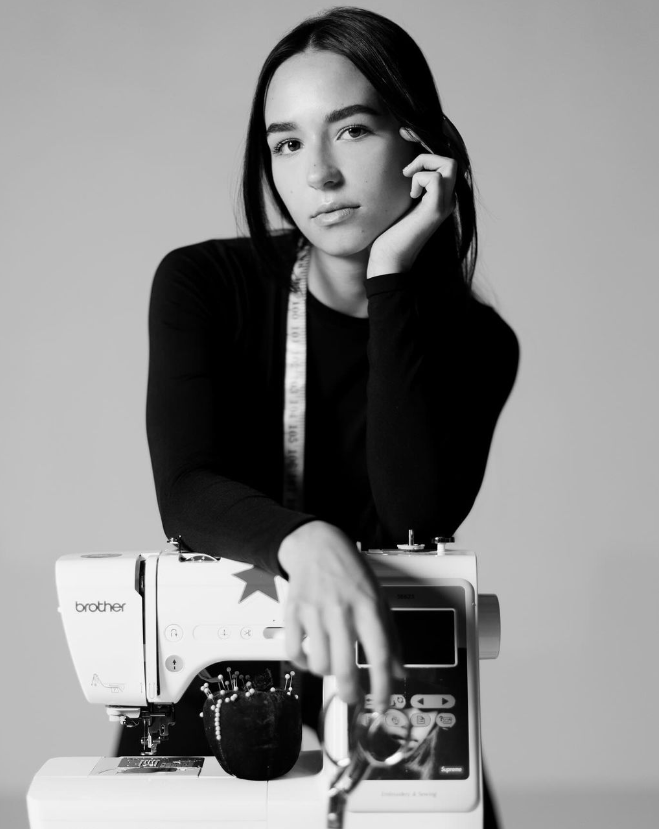
Arianne Burback, designer of Garms 1 of 1, challenges the conventional notion that success is solely tied to obtaining a Master’s degree and working tirelessly. With a deep-rooted passion for creativity that stemmed from her early days of sewing for her dolls with her grandmother, Burback is determined to redefine success through alternative paths.
“Designing is what excites me. Inspiration is exhilarating,” Burback said. “Working in fashion design has been so fulfilling in so many ways, from waking up curious to see what I will create that day, to meeting the flourishing community of creatives in the western United States.”
READ: Introducing Garms 1 of 1, The Upcycled Streetwear Brand Debuting at DFW
Through her commitment to eco-conscious creations, she unveils her latest collection, inspired by the essence of Garms 1 of 1 and the individuality that each person embodies.
“My 16 look collection for Denver Fashion Week’s sustainability night is inspired by the end of my brand name, Garms 1 of 1,” she said. “Fashion is an expression of self, and being ‘1 of 1’ highlights the unique internal and external traits that each of us radiate.”
Her first DFW collection will be full of playful spring and summer colors, taking streetwear inspiration from various cultures and personal experiences. Every piece exudes a sense of rebirth as she upcycled a variety of materials.
“Some of the materials that will be shown in my upcoming DFW collection include pillowcases, military duffels, keyboard buttons, belts, lots of denim, leather, football pads, blankets, tablecloths, curtains, and many other discarded items headed straight for landfills,” Burback said.
By transforming discarded items into unique and enduring garments, Garms 1 of 1 stands as a beacon of “feel good” fashion that champions both style and environmental consciousness.
“It’s our duty as humans to take care of our planet, so we need to take individual responsibility to live as sustainably as possible,” she said. “Slow fashion does not mean to buy less clothing, but to purchase durable and timeless clothing thoughtfully.”
Christos Furs and Leathers
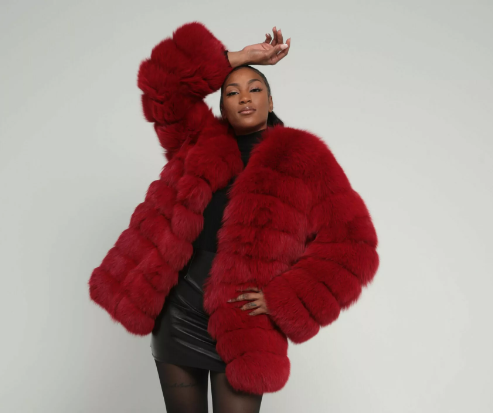
Christos Taltsidis, designer of Christos Furs & Leathers started his company in 2005. With an impressive background working in renowned salons and serving as the lead fur designer for Nordstrom’s Midwest locations, Taltsidis brings his expertise and passion to his design house.
At Christos Furs, “luxury meets longevity” meaning they offer high-end fur and leather apparel that ensures you stand out in your everyday life. With a commitment to creating timeless pieces that are built to last, Christos provides unique designs with relentless attention and passion. As one of the last practicing true fur brands in America, his original designs and intricate craftsmanship set Christos Furs apart from the rest.
“We provide clientele all over the world with the fur and leather they want, delivered with passion and perfection,” Taltsidis said.
With a focus on responsibly sourced materials such as cotton, linen, wool, cashmere, silk, fur, and leather, Christos Furs utilizes technology to provide the world with fashion that lasts a lifetime.
They also offer services like Virtual Redesign to repurpose and reimagine fur garments, repair options, cold vault storage to preserve the texture and appearance of garments, and the opportunity to create your own custom fur or leather piece, all made in Chicago from the highest quality materials.
“Christos designs are purely American-made with international taste, tailored with relentless passion and perfectionism,” The designer said.
Flash + Rose
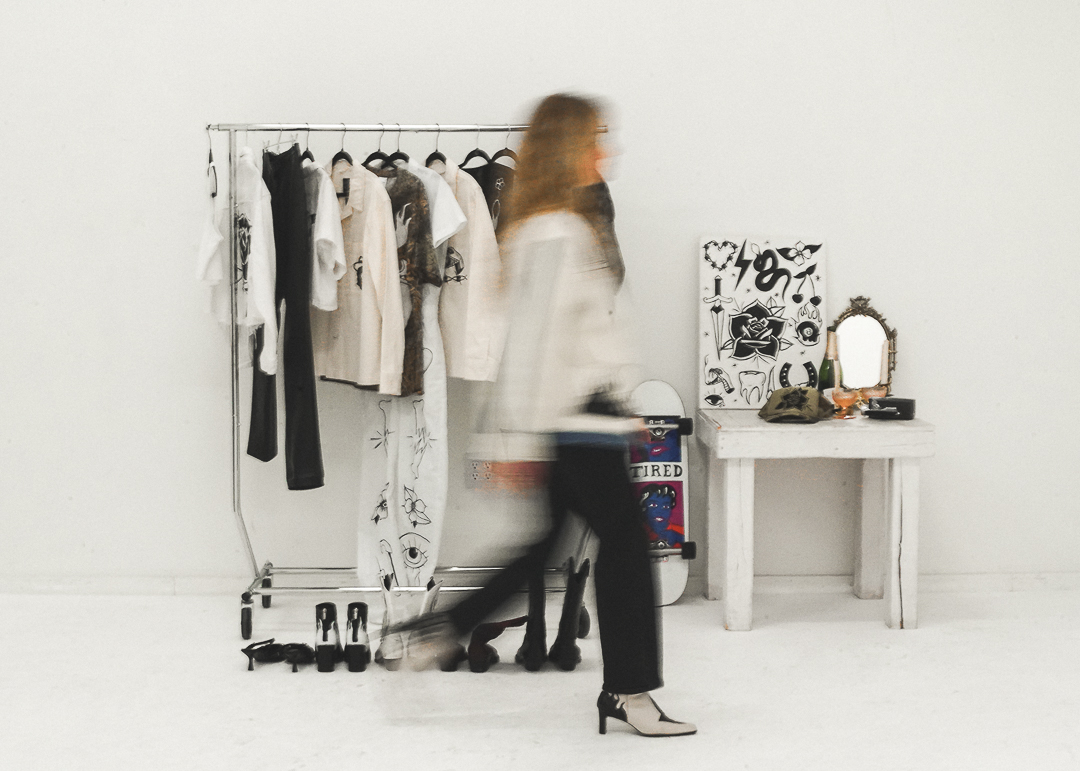
Elisabeth Strunk, the designer of Flash + Rose, embarked on her fashion journey as an art educator before developing a passion for sustainability in the industry. Rather than considering herself solely a designer, she sees herself as more of an artist and upcycler.
Sustainability lies at the core of Strunk’s brand, with every item in her upcoming collection sourced from thrift stores, including painted pieces, shoes, and accessories. Strunk consistently prioritizes sustainable practices in her work, always questioning the most environmentally friendly approach.
READ: Denver Fashion Week’s Inked Clothing: Flash + Rose
“I am big on “controlling the controllables,” Strunk said. This is why she continues to grow sustainably.
Strunk also wants to create looks that her customers feel confident in.
“Honestly, I just want people to wear whatever the hell they want to wear and what they feel good in and not worry about if it is or isn’t on trend,” she said. “I also hope that people recognize that they can put together really dope outfits with used clothing, all while doing their part to positively impact our environment.”
The inspiration behind Strunk’s upcoming DFW collection includes three main themes — Body & Clothing As Canvas, Gender Neutral Clothing, and Minimalism.
“I’ve personally always used clothing and tattoos as a way to express myself, and I know so many others do the same thing,” Strunk said. “All of my hand painted designs are inspired by traditional American tattoo designs — think “Sailor Jerry” tattoos and many of the models walking for Flash + Rose have tattoos themselves.”
The Hair and Image Studio is teaming with Strunk to do hair and make up for her DFW segment.
MOONBELLI
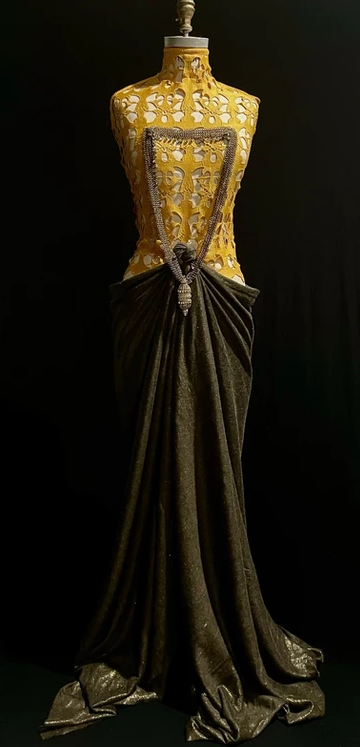
MOONBELLI is a sustainable brand founded by Julie Stermasi.
The designer behind MOONBELLI believes in using clothing as a powerful means of self-expression while promoting sustainability. Stermasi emphasizes the importance of utilizing existing materials and objects rather than creating new ones. Her collections are inspired by the unique materials she discovers and the stories they carry.
“My real obsession is with the artistic legacies of ancient global cultures — the traditional crafts and symbols that have developed to allow the expression of our hopes and dreams, fear and foibles,” Stermasi said.
As a sustainable designer, Stermasi incorporates antique, thrifted, end-of-run, and other found objects or textiles into her creations. By using limited and pre-existing fabrics, primarily natural materials such as silk and wool, Stermasi ensures that her designs have a minimal environmental impact.
“The limited and pre-existing fabrics I source are mostly natural materials such as silk and wool that have lived a long life and will biodegrade if you bury them under the porch,” she said.
In today’s world, where the fashion industry produces excess clothing, Stermasi believes that wearing unique, one-of-a-kind pieces made specifically for the individual’s body, persona, and values is special and meaningful.
Stermasi cherishes materials that have been handmade because they reflect diverse cultural heritages and bear the marks of time and touch.
She calls for collective efforts and creative solutions to support sustainable design. Stermasi sees sustainable designers not only as dressmakers but also as, “Scientists, Engineers and Architects,” deserving recognition and support for their important work.
“I believe all designers want to be good designers and all consumers want real choices; and what do I want? Just a beautiful scrap of gold embroidered wool on the shoulder of my old jacket to battle the day with,” Stermasi said.
TheDenverGinger
Nicole Manning, a local creative in Denver, has found a way to combine her love for community, sustainability, and self-expression through her involvement in the fashion scene with her brand TheDenverGinger.
Manning’s interest in fashion began at a young age. She started modeling at 17 and credited her mother and grandmother for her inherited creativity. As a child, she would piece together clothes using leftover fabric scraps from her grandmother’s sewing projects and even put on fashion shows with her friends.
In her rebellion against fast fashion, Manning began thrifting and formed connections with other resellers.
Manning hopes to shift people’s perspectives and show them that thrifted fashion is not just a passing trend. She believes fashion is cyclical and wants to demonstrate the long-lasting value of second-hand clothing. In addition to her reselling business, Manning also offers personal shopping and styling services.
She encourages her customers to use fashion as a tool for building confidence and showcasing their personalities.
Despite juggling multiple endeavors in hairstyling, modeling, and thrifting, Manning remains grounded and open to meaningful connections. She believes these qualities are essential to her success and integral to her life philosophy.
Manning is excited about new opportunities and looks forward to where her journey will lead, acknowledging that her blessings and the support of her community have played a significant role in her achievements.
HYACINTH
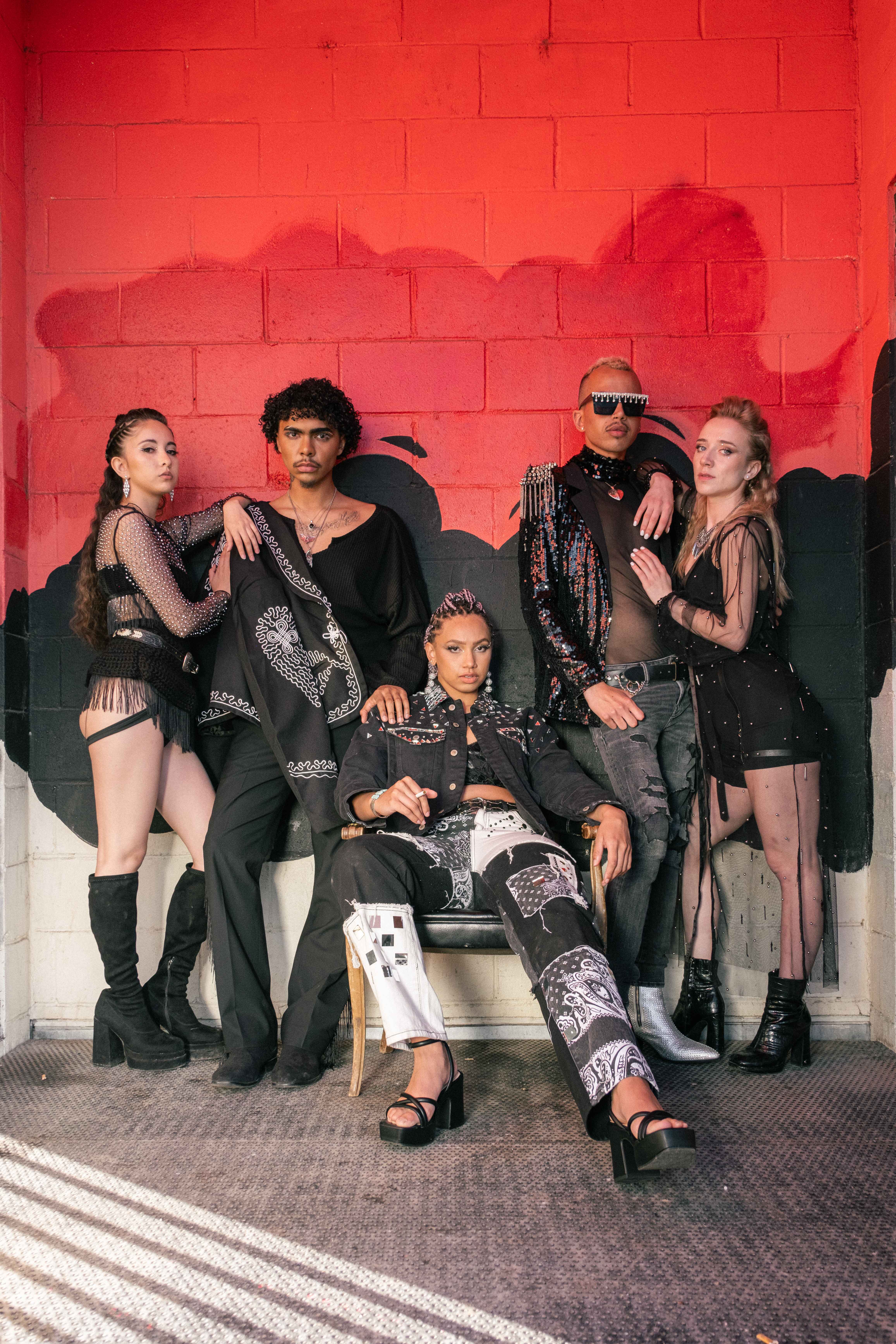
Rachel Hazlewood entered the world of fashion design three years ago when she was invited to participate in an upcycle challenge. Despite not pursuing designing as her full-time job, Hazlewood’s passion for creating clothes has brought her immense joy and opened up a new realm of creativity.
Drawing inspiration from the concept of rising from adversity, her upcoming collection will explore beauty through texture and movement, focusing on the color black as a stark contrast to her previous rainbow-themed collection.
“This season, I wanted something bold, beautiful, and cohesive, with each model’s look having design elements incorporating movement,” Hazlewood said. “I’ve been inspired by art-deco-era fashion and vintage flare, as well as modern rave culture for this line. I’ve incorporated hand-beading, painting, and embroidery to develop the individual personality of each piece.”
Like many other sustainable designers, Hazelwood sources her materials from thrift stores, second-hand craft stores, or repurposes them from vintage garments. She believes in giving old and out-of-style items a second chance by transforming them into something fun and new.
“Many of the materials I use are deconstructed from out-of-style pieces that are then reworked into something fun and new,” she said. “By giving materials a second life in a new piece, it decreases the amount of waste sent to landfills and lowers the carbon footprint associated with the fashion industry. This practice encourages a circular mentality when it comes to fashion, rather than discarding an item after a few uses.”
Sustainability is an integral part of Hazlewood’s brand, HYACINTH. She practices mindful production by working on a few pieces at a time, avoiding over-sourcing and utilizing every part of a deconstructed garment.
“Being a sustainable brand is important to me because of the vastly negative environmental impact of the fashion industry,” she said. “We can all do our part to reduce waste, even with small adjustments to what we buy as consumers.”
Earthly Threads
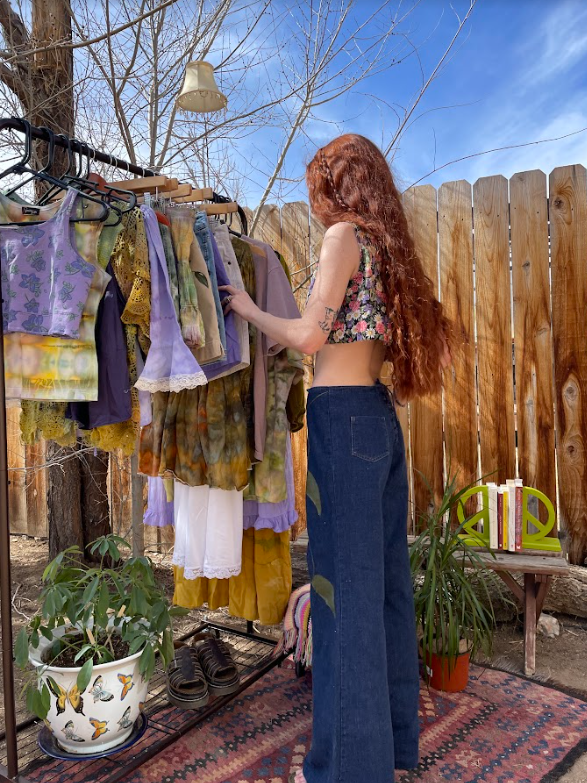
Faith Friend, the visionary behind Earthly Threads, has been passionate about fashion since her early days of crafting outfits for her Bratz and American Girl Dolls. Inspired by the strong women in her life, she developed a confident and gender-neutral style that continues to influence her work.
“Growing up with a family full of women really influenced my style,” Friend said. “My sister most definitely opened my eyes to gender-neutral clothing and wearing what I wanted, without caring what others thought. Now, I continue to express myself through fashion with the confidence instilled in me by the women in my life.”
Friend started creating hand embroidered and tie dyed pieces from thrifted materials. This Fashion Week expect to see Friend’s newest collection, Conscious and Colorful.
“My DFW Collection is inspired by nature, music, psychedelic art, movement, fantasy, and springtime,” she said. “I find new inspiration everyday designing for this collection.”
Made with all second hand, sustainable materials, the collection Strunk is showing is “100% Earthly Threads vices; colorful, harmonious, funky, and experimental.”
“I told myself I needed a theme and a color palette but the more I worked on it the more I realized I wanted it to just be me — 100% authentically me without expectations or pressure on myself,” Friend said.
Friend’s collection for Earthly Threads is a vibrant, harmonious, and experimental blend. Initially, Friend intended to impose a theme and color palette, but as the process unfolded, Friend decided to embrace her authentic self without expectations or pressure. This approach allowed creativity to flow naturally, resulting in an outcome they are proud of.
She draws inspiration from nature and her love for the Earth, influencing her brand’s focus on using natural materials and environmentally friendly dyeing processes. She aims to inspire others to rethink their clothing choices and embrace sustainable fashion through Earthly Threads’ vivid and expressive collection.
Friend hopes that her collection brings delight and encourages mindfulness in fashion consumption for everyone who encounters it.
“My collection is for anyone and everyone so I hope it brings happiness to those that see it,” she said.
Factory Fashion
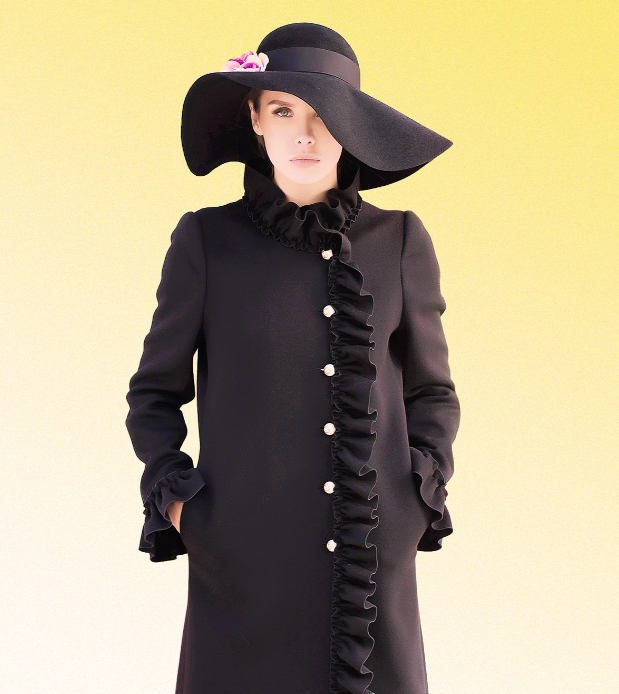
Skye Barker Maa, the creative force behind Factory Fashion, has had a varied career in the arts as an entrepreneur. From owning a music school to running a dance company, Barker Maa eventually found herself in the fashion industry with Factory Fashion. Her business offers a variety of services, from vintage clothing to custom design, alterations, sewing classes, and fashion events.
Barker Maa stumbled into the world of fashion by chance.
Initially, Factory Fashion provided small-batch manufacturing for local designers. During downtime, Barker Maa began designing her own dresses, which soon became her primary focus. Inspired by the future her children will inherit, Barker Maa started exploring ways to address the issue of waste in the fashion industry through her private label, SKYE|AIRE.
Additionally, Factory Fashion now includes a retail component dedicated to vintage, used, and upcycled garments.
“Factory Fashion hosted several industry events that focused on raising awareness about waste in the fashion industry,” Barker Maa said. “I learned a great deal through these forums and wanted to explore creating a collection through my private label that puts these concepts into practice.”
She learned how to work around stains and damage and has become more daring in deconstructing and reconstructing garments.
Barker Maa’s collection was greatly inspired by her mother-in-law who immigrated alone to America, her second cousin who was born into the last generation of segregation, and her Great Aunt who moved to Denver because it was one of they few places she could legally marry an African American man. “The journey of creating this collection started with an exploration of what I have that might be used which also included a jaunt down my historical memory lane. There have been so many impactful conversations with these women.” she said.
“You will not see clothing inspired by the eras that these women maneuvered, but you will see clothing that represents a beautiful journey.” Said Maa
Valerian Projects
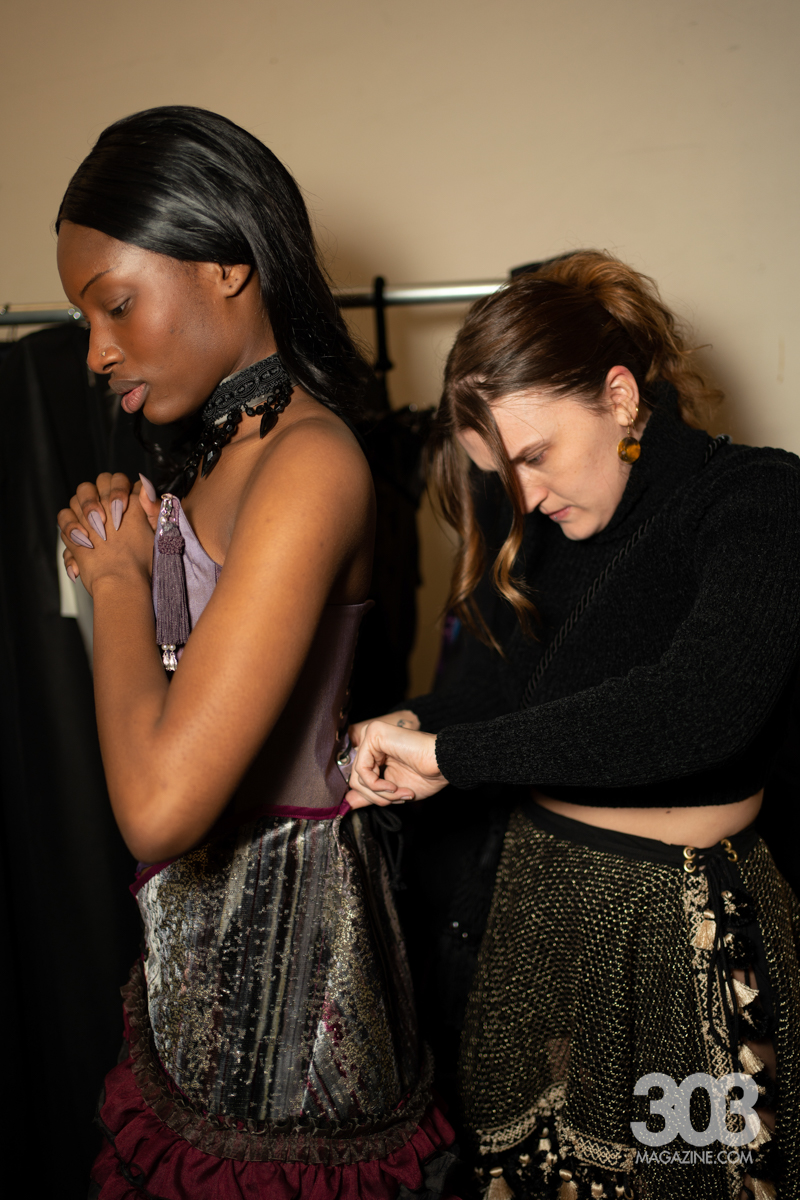
Rachel Hough, the designer behind Valerian Projects, hails from Spanish Fort, Alabama. She stumbled upon her passion for creating clothes while studying hospitality management. She started making clothes for herself for concerts and festivals using fabric from thrift stores or donated by friends.
Hough draws inspiration from the cinematography and design of movies like “Dune 2.” For her latest collection, she wanted to push her boundaries with zippers, coats, and patterns she had never worked with before.
Hough believes in minimizing waste and incorporates repurposed, sustainable materials into her designs.
“I reuse grommets, string, cord, old belts, thrift finds, and curtains from my house that were too long. You name it because I really don’t like to waste,” she said. “I have about 16, 27 gallon black bins of fabric organized by color in my crawl space. That’s how much I don’t like to get rid of fabric.”
Hough’s brand, which she describes as “Whoure Couture,” combines flashy sensual designs with a touch of simplicity and artistic adornment. She loves creating designs that are reminiscent of grandma’s couch, inviting others to experience their allure and comfort.
“I was inspired by ”Dune 2” and Zendaya’s red carpet looks recently. I love simplistic adornment and my brand is what I like to call “Whoure Couture,” she said. “I love showcasing flashy sensual designs that look like your grandma’s couch. A look that says “Come lay on me.”
For Hough, repurposing items brings an accomplished feeling. She feels like she has to continue sharing that ideology with today’s consumerist world.
Canyon Couture
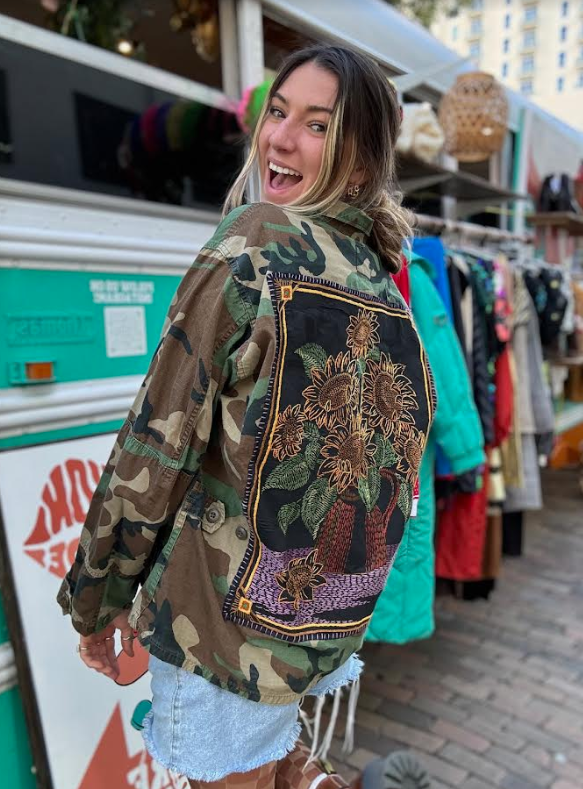
Sara Bartlett, the designer behind Canyon Couture, developed a love for fashion at a young age. Sewing since childhood, she was captivated by the idea of creating unique garments that couldn’t be found anywhere else. Rejecting trends, Bartlett always followed her own interests when designing.
“I feel as if I don’t quite fit into the fashion designer stereotype because I grew up a pretty big tomboy, surfing, skating, climbing trees,” Bartlett said “I have always been a big fan of nature and the outdoors.”
This upbringing shaped her passion for sustainable fashion.
As her design career progressed, Bartlett shifted to sourcing 90% of her materials from recycled fashion. While most of her designs are now original creations, she still incorporates upcycled elements into her collection. One of her standout creations was a dress made entirely from recycled neckties that went viral on TikTok.
Bartlett will be showcasing her newest collection UNPROFESSIONAL which rejects the box that society puts you in and instead creates an unconventional lifestyle.
“The collection is largely made out of unconventional and recycled materials, repurposing uniforms, professional attire and workwear into uniquely fun and funky pieces,” she said.
Bartlett’s collection, UNPROFESSIONAL is about the box the American work culture is put inside of.
“In American society, we tend to place our value in productivity, people compete over who got the least amount of sleep due to their work schedules as if it were a good thing,” Bartlett said. “We are so focused on making the most money possible that we forget what life is really about. Not to mention dress codes and uniforms tend to really cramp your style.”
Get your tickets Denver Fashion Week sustainable tickets here.






